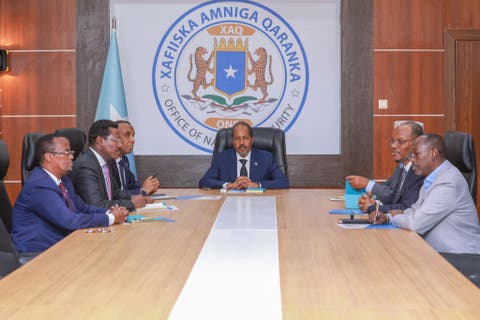Mogadisho(caalamka.net) – Tackling those who support clan representation in Somali politics requires a multi-pronged approach that addresses both the underlying causes of the problem and the immediate challenges posed by clan-based politics.
Firstly, it is important to acknowledge the historical and cultural factors that have contributed to the prevalence of clan identity in Somali society and to work towards promoting a more inclusive and representative political system that accommodates the diversity of the population.
Secondly, efforts should be made to empower civil society organizations and independent media to promote alternative narratives and challenge the dominance of clan-based politics in public discourse. Additionally, targeted interventions such as education and awareness-raising campaigns can help to build a more informed and engaged citizenry that is less susceptible to divisive and exclusionary political rhetoric.
Finally, regional and international actors can play a role in supporting democratic institutions and processes in Somalia and promoting a more stable and peaceful political environment that is less reliant on clan affiliations.
Those who have benefited from clan politics of 4.5 in Somalia including political elites, local & International NGO’s, Think-Tank groups, and other influential individuals who leverage clan affiliations to secure power, resources, and influence and using their misinformation and propaganda, it is important to address the underlying incentives that drive support for clan-based politics, such as the resources and access to power.
This can be achieved through increased transparency and accountability in government, as well as the promotion of alternative channels for political participation and representation that are based on merit and competence, rather than clan identity. Additionally, efforts should be made to build alliances across clan lines and promote a shared sense of national identity that transcends narrow clan interests.
This can be achieved through initiatives that promote inter-clan dialogue, cultural exchange, and civic education, as well as the promotion of positive narratives that highlight the benefits of cooperation and collaboration across clan lines.
An important aspect of promoting democracy in Somalia is the role of competent diplomats who can effectively sell the President’s vision on the world stage. A skilled foreign minister who has the capacity and resources to enhance Somalia’s diplomatic relationships can play a critical role in advancing the country’s agenda and building positive relationships with other nations. By promoting Somalia’s economic potential, cultural heritage, and strategic importance, competent diplomats can help to attract foreign investment, foster trade partnerships, and promote cultural exchange. A skilled foreign minister can help to build alliances with other countries, enhance Somalia’s security and defense capabilities, and promote the country’s interests in regional and international organizations. Ultimately, competent diplomats who are able to effectively represent Somalia’s interests on the global stage can help to promote democracy, stability, and prosperity in the country, and enhance its standing as a respected member of the international community.
The legacy that a President Hassan Sheikh can achieve for bringing people to elect their leaders through a democratic process is significant and long-lasting. By promoting free and fair elections, a President Hassan can also help to establish a culture of democratic participation and civic engagement that fosters a more responsive and accountable government.
This can lead to greater transparency, increased public trust in government, and a more stable political environment that is less prone to conflict and violence. Additionally, a President Hassan Sheikh must prioritizes democratic reforms can that can help to build institutional capacity and strengthen the rule of law, laying the foundation for sustainable economic growth and development. By championing democratic principles and practices, President Hassan can also serve as a role model for other leaders and inspire citizens to take an active role in shaping the future of our country. Ultimately, if President Hassan successfully promotes democratic values and practices can leave a lasting legacy of progress, prosperity, and peace for future generations.






